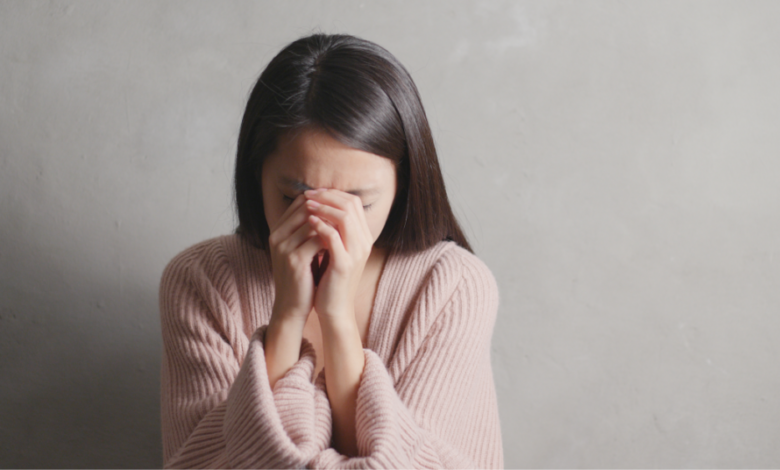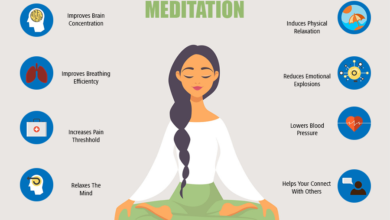
WHEN DEPRESSION GETS WORSE
“When Depression Gets Worse” Living with mental conditions such as depression can be overwhelming for many as it keeps coming in the form of waves. There are days when you are positive about your life but then experiencing another downswing or feeling more doubtful or despair. If it’s something taking a toll on your life and you feel like there is nothing that can take you out of this vicious cycle of despair, then you need to find what works best for you because everything isn’t for everyone.
Alright, everything isn’t for everyone, but here are some important things to learn about getting help if your depression is getting worse.
Signs To Look For When Depression Gets Worse
It’s not easy to identify the state of being in a depressive downswing. However, paying attention to the symptoms creeping up on you can depict telltale signs. Once you start to suspect the following signs, then it’s worth seeking medical help.
1- Depressive Episodes
Living with depression means there will be days when your energy levels are low, and you are finding it hard to muster up enough energy to run errands and doing chores. Anhedonia or the constant feeling of displeasure is one of the key indicators of depression.
2- Numbness
There are times when we need some “me” time, and that’s perfectly okay. But, if there is an increase in the sense of loneliness, then this is where it gets troublesome. You might end up believing as if nobody cares about you.
3- Disturbance In Eating And Sleeping Pattern
When you are in a depressive mood, you might end up eating more than usual, or at times you will have to force yourself to stuff food in your mouth. Also, lack of sleep contributes to being one of the biggest symptoms of severe depression. Having trouble sleeping at night affects your energy level.
4- Constant Distress
Following are the symptoms you will most likely face while in depression:
- Gloominess.
- Feeling hopeless.
- Numbness.
- Pessimistic approach.
- Overthinking.
At times these feelings tend to become stronger so you may see yourself:
- Ruminating.
- Having thoughts of suicide.
- Doing self-harm to get away with the numbness.
- Believing that you are worthless.
Even with the treatment, if it continues to persist then don’t wait to get in touch with professional health care.
Side Effects of Untreated Depression
Untreated depression poses a serious problem as it doesn’t just affect the body but mental health, sleep, and eating patterns. It might increase the chances of risky behaviors involving alcohol and drug abuse.
How Does It Affect Physically?
Depression can take a toll on physical health. According to the studies, people with severe depression recovering from heart problems often take time to make healthcare choices. They find it hard to cope with the challenges that an illness poses.
Does It Disrupt Sleep?
Insomnia is one of the telltale signs of depression. People with depression may feel a need for excessive sleep or might end up losing or gaining weight. Insomnia usually results in energy loss, less concentration, or a feeling of tiredness. Getting the right treatment will help you get back to life.
Do People With Depression Fall Prey To Drugs And Alcohol?
Indeed, people experiencing depression are most likely to fall prey to drug abuse and alcohol. These things are common in teens, middle-aged men, and youngsters. They need some serious help; else, they are prone to attempt suicide.
Signs of Alcohol & Drug Abuse:
- Not willing to discuss alcohol and drugs.
- Memory loss.
- Rumination about own-self.
- Difficulty in maintaining relationships.
People suffering from drug and alcohol abuse need specialized and prompt treatment.
Does It Affect Family Relations?
Yes, it gets really hard to live with a person with depression. However, family members are often a great help in treating depression via marital or family therapy. It’s not easy to see your loved ones suffer.
Is It Really A Disability?
Of course, depression can make people unable to function in their professional, social, and domestic lives. Untreated depression costs the economy more than other chronic diseases. Each year over 200 million days are missed from work because of depression. The annual cost of which in terms of productivity loss, costs of treatment, and absenteeism is more than $43.7 billion.
What To Do When Depression Gets Worse
If you are experiencing depression in episodes, and then there are times it suddenly comes back and gets intensified, don’t panic; it’s not something permanent or untreatable. Following are the measures that can help you to cope up with the challenges it poses:
Call for Help
Reach out for help that will point you in the right direction. Talk about the patterns you are encountering, including:
- Whether you are taking any medications.
- Since when are you experiencing these symptoms?
- If it worsens with time or all at once.
- Any changes in life.
The more you talk about your symptoms, the more convenient it gets for the therapist to diagnose them properly. Whatever symptoms you are noticing, just convey them to your therapist. Be it anger issues, pain, or restlessness because it will help them treat you more efficiently.
These symptoms could attribute to excessive stress, insomnia, etc., but they also pose a possibility of other conditions such as bipolar or depression with psychotic features. Hence, getting the right diagnosis will make all the difference.
Medical treatment, therapy, or Both?
Not everybody is alike; what works for you might not work for others. There are plenty of choices you can make depending upon your likenesses, including lifestyle changes, medicines, therapy, etc.
Some of the helpful approaches used by the therapist to treat depression include:
- Cognitive Behavioral therapy.
- Game therapy.
- Humanistic therapy.
- Psychodynamic therapy.
- Interpersonal therapy.
But, if the current medication is failing to ease the symptoms, your therapist or doctor might change it. They might prefer prescribing a combination of medications to treat other severe signs, including psychosis and episodes of anxiety.
Adding strategies to cope up with the illness and alternative treatments can make a whole lot of difference. Try to consider the following:
- Working out.
- Acupuncture.
- Yoga.
- Meditation.
All in all, treatments of depression aren’t confined to a single category. Rather, there are various ways to treat depression. When the current treatment fails to ease the symptoms, then trying a different approach might help.
Immediate Help
When you are in depressive despair, and your typical coping mechanism doesn’t seem to be working, it’s natural to have a feeling of powerlessness.
The following tips may help you get the right support.
1- Talk It Out
Believe it or not but it’s the best you can do because opening up to somebody gives you a sense of belonging, and you may not feel lonely. They don’t just provide emotional support but help in other daunting tasks such as prepping food etc.
It’s not easy to talk about your depression, especially when you have a fear of being judged or burdening your family. Try asking for help from a supportive friend or family member so you wouldn’t have to worry much.
2- Ask For Help During A Crisis
Are you having second thoughts? Considering suicide to escape these overwhelming feelings? Then you need to reach out for a crisis helpline that will provide immediate support to fight off those thoughts.
- You can reach the national suicide prevention lifeline 24/7 by calling 800 273 82533.
- You can also ask for assistance via texting “HOME” to 741741
3- Calling The Therapist
Reach out to your therapist for immediate support, don’t miss out on the opportunity of some last-minute appointment.
Even if there isn’t any slot available, they might offer some guidance for seeking help in the meantime.
Knowing that you have an appointment coming up might provide a sense of relief.
Still don’t have a therapist to go to? Try to search on:
- National Institute of Mental Health.
- American Psychological Association.
- American Psychiatric Association.
The Takeaway
It’s very frustrating when the first few sessions don’t lead to what you are expecting. But don’t give up; nobody knows yourself better than you. Try implementing different approaches until you find out what works best in your favor!




